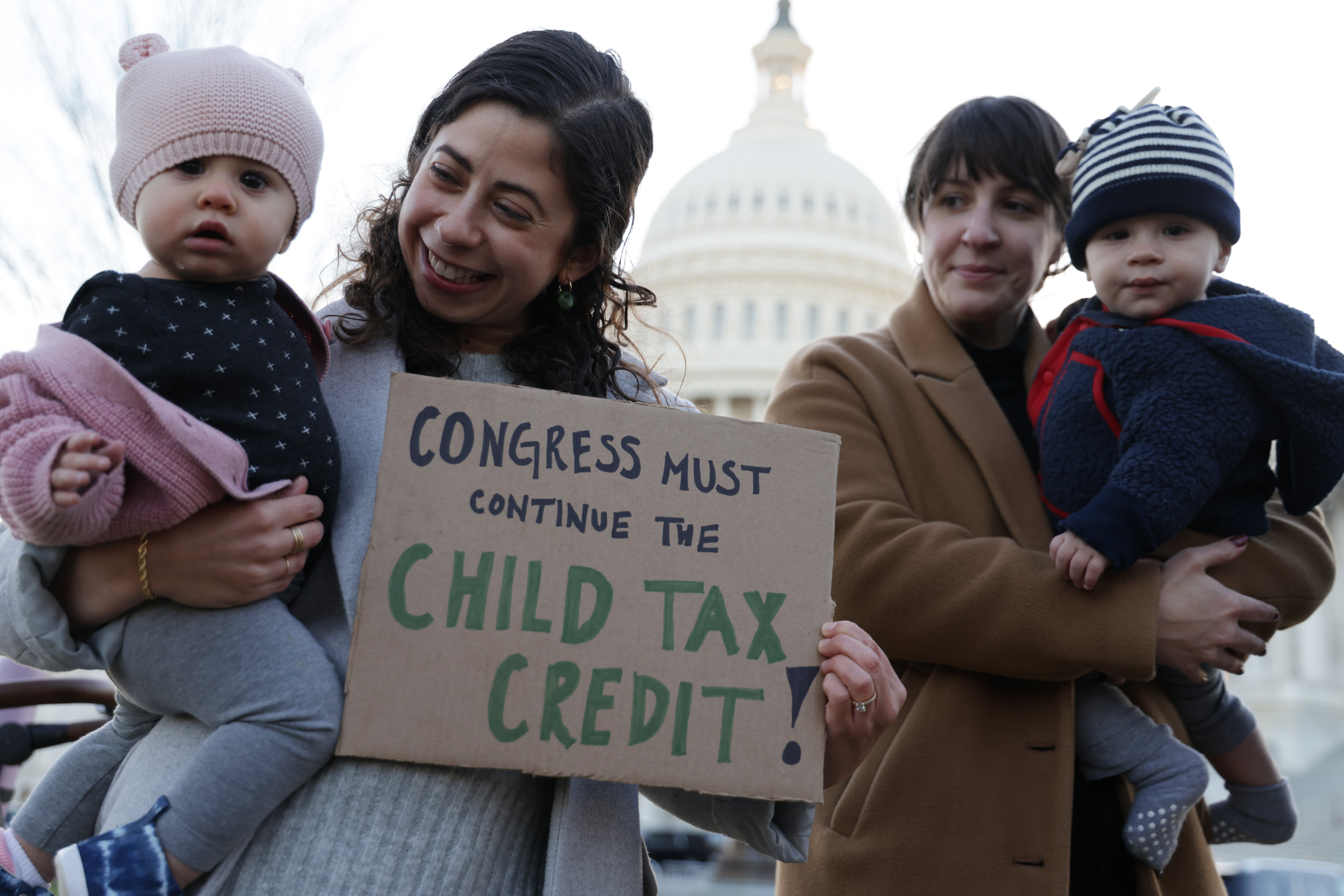WASHINGTON – Gammy, Nonni, MeeMaw, Bubbie: Consider them the unofficial House Grandma Caucus.
Grandmothers on Capitol Hill are rallying to restore the monthly child tax credit payments that end Wednesday. The payments, which covered more than 60 million children, were part of the Covid relief bill passed in the spring.
Extending the benefit is one of the core elements of Democrats’ sweeping social spending package, also known as the Build Back Better Act. And these congressional grandmas hope their senior status gives them special clout in Washington.
“I have two little grandchildren, both who are in diapers. We’re trying to toilet train one of them,” Rep. Lois Frankel, D-Fla., told CNBC. “But even the cost of diapers has gone up 14% this past year.” That’s a lot for some families, she added.
Other outspoken grandmothers on Capitol Hill include Reps. Rosa DeLauro, Debbie Dingell and Jan Schakowsky. Then there’s the most powerful grandma of them all – House Speaker Nancy Pelosi, who has nine grandchildren.
On Wednesday, Pelosi called the payment “essential,” and pressed the Senate to pass the Build Back Better bill. “The children and their families will suffer without that payment,” Pelosi said during a news conference.
The Grandma Caucus is not alone. Advocacy groups are organizing grandparents across the country under the hashtag #TheGrandmasAreComing. They staged a demonstration on Capitol Hill last week and arranged a meeting with the White House.
“I have six grandkids, and to watch them grow while I’m always working, it was so sad,” Joyce Barnes, a Virginia grandma, told Cecilia Rouse, President Joe Biden’s top economic advisor, during a meeting this week.
According to the Census Bureau, more than seven million grandparents live with grandkids who are younger than 18. More than a third of them are responsible for the children’s basic care. In many cases, that qualified them to receive the enhanced child tax credit this year: Up to $300 a month for each child under 6 years old and $250 a month for those aged 6 to 17.
“I think grandparents have been playing this role for a long time,” DeLauro, D-Conn., told CNBC. “But I think we’re only now beginning to see it, to understand it, and shine a light on what they do.”
Mary Beth Cochran, 52, of North Carolina, is the primary caregiver for two of her 16 grandchildren. She gained custody of them seven years ago after her daughter battled addiction and suffered from domestic violence. Cochran said she has struggled to pay the bills, often choosing between electricity or groceries.
Then came the pandemic and the challenges of virtual school.
“I wish I would not have to rely on these programs to provide for me and my family. But I have to in order to make ends meet,” Cochran told CNBC. “I don’t want people to look at me and my grandchildren as lower than low.”
Under the Covid relief law that President Joe Biden signed earlier this year, the IRS began sending advanced child tax credit payments to eligible households in July. They cover about 61 million children, and the program has sent out roughly $93 billion so far, according to government data.
The last monthly check arrives Wednesday, but the rest of the 2021 credit will be available in a lump sum after taxpayers file their returns.
In 2022, the credit will revert to $2,000 for each child regardless of age, and it will no longer be available in monthly installments. While Republicans have supported increasing the credit in the past, many oppose the current benefit as too generous during an economic recovery and too expensive in the long-run. GOP Sen. Tommy Tuberville of Alabama accused Democrats of wanting to “tear down” the nuclear family.
“Don’t worry about two parents, one parent can do this because we’re going to pay your way for the opportunity to sit at home or get a job,” he said.
Democrats argue the program has dramatically reduced childhood poverty and are proposing to extend the larger credit and continue the regular advanced payments until 2023. Some lawmakers have even called for making the changes permanent.
“A lot of us, yes, we can budget our money, but we don’t have enough to make it through the month,” Cochran said.
Cochran gets $500 a month for her two grandchildren – just enough to cover her $424 car lease and $89 insurance bill. It’s the first time in her life that Cochran has been able to afford a car of her own – a red-orange Ford Fiesta – and she said it’s been crucial for getting to the grocery store and doctor’s appointments. She even drove her granddaughter to her first travel basketball game.
“It’s been a struggle, but I would not change anything for the world,” Cochran said. “These grandchildren are keeping me young. They’re keeping me going every day. That’s the reason that I wake up and continue to do this.”
